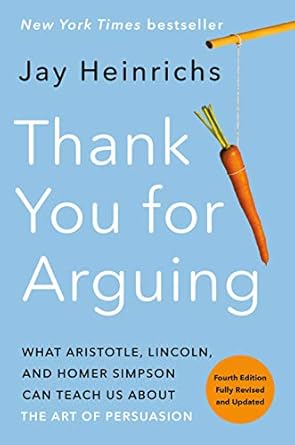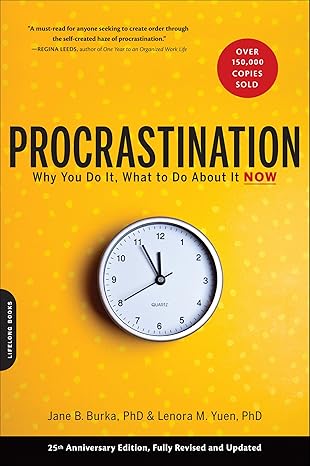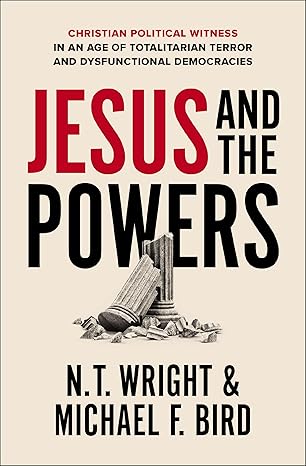
Strategy Combo: The Art of War + The Book of Five Rings
The Art of War: The Art of War' is an ancient Chinese military treatise written by Sun Tzu, a high-ranking military general, strategist and tactician. The text is composed of 13 chapters, each of which is devoted to one aspect of warfare. It is commonly known to be the definitive work on military strategy and tactics of its time. It has been the most famous and influential of China's Seven Military Classics, and for the last two thousand years it remained the most important military treatise in Asia, where even the common people knew it by name. Sun Tzu believed war to be an essential wrongdoing that must be got rid of whenever it can be.
The war should be fought fleetingly to reduce economic decline. Sun Tzu harped on the significance of placement in military tactics. The planning to position an army must be dependent on the stipulations in the physical surroundings and the subjective thoughts of various militants in those conditions. He believed that strategy cannot be considered as planning with respect to glancing through a previously decided list. It is better represented by the fact that it needs speedy and suitable reactions to altering situations.
Planning gives results in restrained surroundings. But in case of an altering environment, similar plans come in each other's ways and give rise to undesired outcomes. It has had an influence on Eastern and Western military thinking, business tactics, legal strategy and beyond. The Book of Five Rings: Along with sun Tzu's the art of War, the book of five rings is considered to be one of the most insightful texts on the subtle arts of confrontation and victory to emerge from Asia. It analyses the process of struggle and mastery over conflict that underlies every level of human interaction. For musashi, the way of the martial arts was a mastery of the mind rather than simply technical prowess—and it is this path to mastery that is the core teaching in the book of five rings. This brilliant manifesto is written not only for martial artists but for anyone who wants to apply the timeless principles of this text to their life.
BEST DEALS
About the Author
Sun Tzu, also known as Sun Wu or Sunzi, was an ancient Chinese military strategist believed to be the author of the acclaimed military text, 'The Art of War'. Details about Sun Tzu's background and life are uncertain, although he is believed to have lived C 544-496 BCE. Sun Tzu believed in the use of the military sciences to effect outcomes that would result in peace.
Through 'The Art of War', Sun Tzu's theories and strategies have influenced military leaders and campaigns throughout time, including the samurai of ancient and early-modern Japan, and more recently Ho Chi Minh of the Viet Cong and American generals Norman Swarzkopf, Jr. and Colin Powell during the Persian Gulf War in the 1990s.
Read Sample
Chapter 1 : Laying Plans
1. Sun Tzu said: The art of war is of vital importance to the State.
2. It is a matter of life and death, a road either to safety or to ruin. Hence it is a subject of inquiry which can on no account be neglected.
3. The art of war, then, is governed by five constant factors, to be taken into account in one’s deliberations, when seeking to determine the conditions obtaining in the field.
4. These are: (1) The Moral Law; (2) Heaven; (3) Earth; (4) The Commander; (5) Method and discipline.
5, 6. The Moral Law causes the people to be in complete accord with their ruler, so that they will follow him regardless of their lives, undismayed by any danger.
7. Heaven signifies night and day, cold and heat, times and seasons.
8. Earth comprises distances, great and small; danger and security; open ground and narrow passes; the chances of life and death.
9. The Commander stands for the virtues of wisdom, sincerity, benevolence, courage and strictness.
The five cardinal virtues of the Chinese are
(1) humanity or benevolence; (2) uprightness of mind; (3) self-respect, self-control, or ‘proper feeling’;
(4) wisdom; (5) sincerity or good faith.
10. By Method and discipline are to be understood the marshalling of the army in its proper subdivisions, the gradations of rank among the officers, the maintenance of roads by which supplies may reach the army, and the control of military expenditure.
11. These five heads should be familiar to every general: he who knows them will be victorious; he who knows them will not fail.
12. Therefore, in your deliberations, when seeking to determine the military conditions, let them be made the basis of a comparison, in this wise.
13. (1) Which of the two sovereigns is imbued with the Moral law?
(2) Which of the two generals has most ability?
(3) With whom lie the advantages derived from Heaven and Earth?
(4) On which side is discipline most rigorously enforced?
Tu Mu alludes to the remarkable story of Ts‘ao Ts‘ao (A.D. 155-220), who was such a strict disciplinarian that once, in accordance with his own severe regulations against injury to standing crops, he condemned himself to death for having allowed his horse to stay into a field of corn! However, in lieu of losing his head, he was persuaded to satisfy his sense of justice by cutting off his hair. ‘When you lay down a law, see that it is not disobeyed; if it is disobeyed, the offender must be put to death.’
(5) Which army is the stronger?
(6) On which side are officers and men more highly trained?
‘Without constant practice, the officers will be nervous and undecided when mustering for battle; without constant practice, the general will be wavering and irresolute when the crisis is at hand.’
(7) In which army is there the greater constancy both in reward and punishment?
That is, on which side is there the most absolute certainty that merit will be properly rewarded and misdeeds summarily punished?
14. By means of these seven considerations I can forecast victory or defeat.
15. The general that hearkens to my counsel and acts upon it, will conquer—let such a one be retained in command! The general that hearkens not to my counsel nor acts upon it, will suffer defeat—let such a one be dismissed!
16. While heeding the profit of my counsel, avail yourself also of any helpful circumstances over and beyond the ordinary rules.
17. According to circumstances that are favourable, one should modify one’s plans.
Sun Tzu, as a practical soldier, cautions us here not to pin our faith to abstract principles; ‘for,’ as Chang Yü puts it, ‘while the main laws of strategy can be stated clearly enough for the benefit of all and sundry, you must be guided by the actions of the enemy in attempting to secure a favourable position in actual warfare.’ On the eve of the battle of Waterloo, Lord Uxbridge, commanding the cavalry, went to the Duke of Wellington in order to learn what his plans and calculations were for the morrow, because, as he explained, he might suddenly find himself Commander-in-chief and would be unable to frame new plans in a critical moment. The Duke listened quietly and then said: ‘Who will attack the first tomorrow – I or Bonaparte?’ ‘Bonaparte,’ replied Lord Uxbridge. ‘Well,’ continued the Duke, ‘Bonaparte has not given me any idea of his projects; and as my plans will depend upon his, how can you expect me to tell you what mine are?’
18. All warfare is based on deception.
The truth of this pithy and profound saying will be admitted by every soldier. Wellington, great in so many military qualities, was especially distinguished by ‘the extraordinary skill with which he concealed his movements and deceived both friend and foe.’
19. Hence, when able to attack, we must seem unable; when using our forces, we must seem inactive; when we are near, we must make the enemy believe we are far away; when far away, we must make him believe we are near.
20. Hold out baits to entice the enemy. Feign disorder, and crush him.
21. If he is secure at all points, be prepared for him. If he is in superior strength, evade him.
22. If your opponent is of choleric temper, seek to irritate him. Pretend to be weak, so that he may grow arrogant.
The good tactician plays with his adversary as a cat plays with a mouse, first feigning weakness and immobility, and then suddenly pouncing upon him.
23. If he is taking his ease, give him no rest. If his forces are united, separate them.
24. Attack him where he is unprepared, appear where you are not expected.
25. These military devices, leading to victory, must not be divulged beforehand.
26. Now the general who wins a battle makes many calculations in his temple ere the battle is fought. The general who loses a battle makes but few calculations beforehand. Thus do many calculations lead to victory, and few calculations to defeat: how much more no calculation at all! It is by attention to this point that I can foresee who is likely to win or lose.
Chapter 2 : Waging War
‘He who wishes to fight must first count the cost,’ which prepares us for the discovery that the subject of the chapter is not what we might expect from the title, but is primarily a consideration of ways and means.
1. Sun Tzu said: In the operations of war, where there are thousand swift chariots in the field, so many heavy chariots, and a hundred thousand mail-clad soldiers, with provisions enough to carry them a thousand li, the expenditure at home and at the front, including entertainment of guests, small items such as glue and paint, and sums spent on chariots and armour, will reach the total of a thousand ounces of silver per day. Such is the cost of raising an army of 100,000 men.
2. When you engage in actual fighting, if victory is long in coming, the men’s weapons will grow dull and their ardour will be damped. If you lay siege to a town, you will exhaust your strength.
3. Again, if the campaign is protracted, the resources of the State will not be equal to the strain.
4. Now, when your weapons are dulled, your ardour damped, your strength exhausted and your treasure spent, other chieftains will spring up to take advantage of your extremity. Then no man, however wise, will be able to avert the consequences that must ensue.
5. Thus, though we have heard of stupid haste in war, cleverness has never been seen associated with long delays.
6. There is no instance of a country having benefited from prolonged warfare.
7. It is only one who is thoroughly acquainted with the evils of war can only thoroughly understand the profitable way of carrying it on.
That is, with rapidity. Only one who knows the disastrous effects of a long war can realise the supreme importance of rapidity in bringing it to a close.
8. The skilful soldier does not raise a second levy, neither are his supply-waggons loaded more than twice.
Once war is declared, he will not waste precious time in waiting for reinforcements, nor will he turn his army back for fresh supplies, but crosses the enemy’s frontier without delay. This may seem an audacious policy to recommend, but with all great strategists, from Julius Caesar to Napoleon Bonaparte, the value of time—that is, being a little ahead of your opponent—has counted for more than either numerical superiority or the nicest calculations with regard to commissariat.
9. Bring war material with you from home, but forage on the enemy. Thus the army will have food enough for its needs.
10. Poverty of the State exchequer causes an army to be maintained by contributions from a distance. Contributing to maintain an army at a distance causes the people to be impoverished.
11. On the other hand, the proximity of an army causes prices to go up; and high prices cause the people’s substance to be drained away.
12. When their substance is drained away, the peasantry will be afflicted by heavy exactions.
13, 14. With this loss of substance and exhaustion of strength, the homes of the people will be stripped bare, and three-tenths of their incomes will be dissipated; while Government expenses for broken chariots, worn-out horses, breast-plates and helmets, bows and arrows, spears and shields, protective mantlets, draught-oxen and heavy waggons, will amount to four-tenths of its total revenue.
‘The people being regarded as the essential part of the State, and food as the people’s heaven, is it not right that those in authority should value and be careful of both?’
15. Hence a wise general makes a point of foraging on the enemy. One cartload of the enemy’s provisions is equivalent to twenty of one’s own, and likewise a single picul of his provender is equivalent to twenty from one’s own store.
Because twenty cartloads will be consumed in the process of transporting one cartload to the front.
16. Now in order to kill the enemy, our men must be roused to anger; that there may be advantage from defeating the enemy, they must have their rewards.
‘Rewards are necessary in order to make the soldiers see the advantage of beating the enemy; thus, when you capture spoils from the enemy, they must be used as rewards, so that all your men may have a keen desire to fight, each on his own account.’
17. Therefore in chariot fighting, when ten or more chariots have been taken, those should be rewarded who took the first. Our own flags should be substituted for those of the enemy, and the chariots mingled and used in conjunction with ours. The captured soldiers should be kindly treated and kept.
18. This is called, using the conquered foe to augment one’s own strength.
19. In war, then, let your great object be victory, not lengthy campaigns.
‘War is not a thing to be trifled with.’
20. Thus it may be known that the leader of an army is the arbiter of the people’s fate, the man on whom it depends whether the nation shall be in peace or in peril.
Chapter 3 : Attack by Stratagem
1. Sun Tzu said: In the practical art of war, the best thing of all is to take the enemy’s country whole and intact; to shatter and destroy it is not so good. So, it is better to capture an entire army than to destroy it, to capture a regiment, a detachment or a company entire than to destroy them.
2. Hence to fight and conquer in all your battles is not supreme excellence; supreme excellence consists in breaking the enemy’s resistance without fighting.
3. Thus the highest form of generalship is to baulk the enemy’s plans; the next best is to prevent the junction of the enemy’s forces;
Isolating him from his allies. We must not forget that Sun Tzu in speaking of hostilities, always has in mind the numerous states or principalities into which the China of his day was split up.
the next in order is to attack the enemy’s army in the field;
When he is already in full strength.
and the worst policy of all is to besiege walled cities.
4. The rule is, not to besiege walled cities if it can possibly be avoided.
The preparation of mantlets, movable shelters, and various implements of war, will take up three whole months; and the piling up of mounds over against the walls will take three months more.
5. The general, unable to control his irritation, will launch his men to the assault like swarming ants, with the result that one-third of his men are slain, while the town still remains untaken. Such are the disastrous effects of a siege.
6. Therefore the skilful leader subdues the enemy’s troops without any fighting; he captures their cities without laying siege to them; he overthrows their kingdom without lengthy operations in the field.
7. With his forces intact he will dispute the mastery of the Empire, and thus, without losing a man, his triumph will be complete.
This is the method of attacking by stratagem.
8. It is the rule in war, if our forces are ten to the enemy’s one, to surround him; if five to one, to attack him; if twice as numerous, to divide our army into two.
‘If our force is twice as numerous as that of the enemy, it should be split up into two divisions, one to meet the enemy in front, and one to fall upon his rear; if he replies to the frontal attack, he may be crushed from behind; if to the rearward attack, he may be crushed in front. This is what is meant by saying that “one part may be used in the regular way, and the other for some special diversion.”’
9. If equally matched, we can offer battle;
‘If attackers and attacked are equally matched in strength, only the able general will fight.’
if slightly inferior in numbers, we can avoid the enemy; if quite unequal in every way, we can flee from him.
10. Hence, though an obstinate fight may be made by a small force, in the end it must be captured by the larger force.
11. Now the general is the bulwark of the State: if the bulwark is complete at all points, the State will be strong; if the bulwark is defective, the State will be weak.
12. There are three ways in which a ruler can bring misfortune upon his army:
13. (1) By commanding the army to advance or to retreat, being ignorant of the fact that it cannot obey. This, is called hobbling the army.
‘A kingdom should not be governed from outside, an army should not be directed from within.’ Of course it is true that, during an engagement, or when in close touch with the enemy, the general should not be in the thick of his own troops, but a little distance apart. Otherwise, he will be liable to misjudge the position as a whole, and give wrong orders.
14. (2) By attempting to govern an army in the same way as he administers a kingdom, being ignorant of the conditions which obtain in an army, this causes restlessness in the soldiers’ minds.
‘The military sphere and the civil sphere are wholly distinct; you can’t handle an army in kid gloves.’ And: ‘Humanity and justice are the principles on which to govern a state, but not an army; opportunism and flexibility, on the other hand, are military rather than civic virtues.’
15. (3) By employing the officers of his army without discrimination,
That is, he is not careful to use the right man in the right place.
through ignorance of the military principle of adaptation to circumstances. This shakes the confidence of the soldiers.
‘If a general is ignorant of the principle of adaptability, he must not be entrusted with a position of authority.’ The skilful employer of men will employ the wise man, the brave man, the covetous man, and the stupid man. For the wise man delights in establishing his merit, the brave man likes to show his courage in action, the covetous man is quick at seizing advantages, and the stupid man has no fear of death.’
16. But when the army is restless and distrustful, trouble is sure to come from the other feudal princes. This is simply bringing anarchy into the army, and flinging victory away.
17. Thus we may know that there are five essentials for victory:
(1) He will win who knows when to fight and when not to fight.
‘If he can fight, he advances and takes the offensive; if he cannot fight, he retreats and remains on the defensive. He will invariably conquer who knows whether it is right to take the offensive or the defensive.’
(2) He will win who knows how to handle both superior and inferior forces.
This is not merely the general’s ability to estimate numbers correctly: ‘By applying the art of war, it is possible with a lesser force to defeat a greater, and vice versa. The secret lies in an eye for locality, and in not letting the right moment slip. With a superior force, make for easy ground; with an inferior one, make for difficult ground.’
(3) He will win whose army is animated by the same spirit throughout all its ranks.
(4) He will win who, prepared himself, waits to take the enemy unprepared.
(5) He will win who has military capacity and is not interfered with by the sovereign.
‘It is the sovereign’s function to give broad instructions, but to decide on battle is the function of the general.’ It is needles to dilate on the military disasters which have been caused by undue interference with operations in the field on the part of the home government. Napoleon undoubtedly owed much of his extraordinary success to the fact that he was not hampered by any central authority.
Victory lies in the knowledge of these five points.
18. Hence the saying: If you know the enemy and know yourself, you need not fear the result of a hundred battles. If you know yourself but not the enemy, for every victory gained you will also suffer a defeat. If you know neither the enemy nor yourself, you will succumb in every battle.
‘Knowing the enemy enables you to take the offensive, knowing yourself enables you to stand on the defensive. Attack is the secret of defence; defence is the planning of an attack.’
Chapter 4 : Tactical Dispositions
1. Sun Tzu said: The good fighters of old first put themselves beyond the possibility of defeat, and then waited for an opportunity of defeating the enemy.
2. To secure ourselves against defeat lies in our own hands, but the opportunity of defeating the enemy is provided by the enemy himself.
3. Thus the good fighter is able to secure himself against defeat,
‘By concealing the disposition of his troops, covering up his tracks, and taking unremitting precautions’ (Chang Yü).
but cannot make certain of defeating the enemy.
4. Hence the saying: One may know how to conquer without being able to do it.
5. Security against defeat implies defensive tactics; ability to defeat the enemy means taking the offensive.
6. Standing on the defensive indicates insufficient strength: attacking, a superabundance of strength.
7. The general who is skilled in defence hides in the most secret recesses of the earth; he who is skilled in attack flashes forth from the topmost heights of heaven. Thus on the one hand we have ability to protect ourselves; on the other, a victory that is complete.
8. To see victory only when it is within the ken of the common herd is not the acme of excellence.
9. Neither is it the acme of excellence if you fight and conquer and the whole Empire says, ‘Well done!’
True excellence being, ‘To plan secretly, to move surreptitiously, to foil the enemy’s intentions and baulk his schemes, so that at last the day may be won without shedding a drop of blood.’
10. To lift an autumn hair is no sign of great strength; to see sun and moon is no sign of sharp sight; to hear the noise of thunder is no sign of a quick ear.
Ho Shin gives us real instances of strength, sharp sight and quick hearing: Wu Huo, who could lift a tripod weighing 250 stone (350 Ib.); Li Chu, who at a distance of a hundred paces could see objects no bigger than a mustard seed; and Shih K’uang, a blind musician who could hear the footsteps of a mosquito.
11. What the ancients called a clever fighter is one who not only wins, but excels in winning with ease.
‘He who only sees the obvious, wins his battles with difficulty; he who looks below the surface of things, wins with ease.’
12. Hence his victories bring him neither reputation for wisdom nor credit for courage.
‘In as much as his victories are gained over circumstances that have not come to light, the world at large knows nothing of them, and he wins no reputation for wisdom; in as much as the hostile state submits before there has been any bloodshed, he receives no credit for courage.’
13. He wins his battles by making no mistakes.
‘He plans no superfluous marches, he devises no futile attacks. One who seeks to conquer by sheer strength, clever though he may be at winning pitched battles, is also liable on occasion to be vanquished; whereas he who can look into the future and discern conditions that are not yet manifest, will never make a blunder and therefore invariably win.’
Making no mistakes is what establishes the certainty of victory, for it means conquering an enemy that is already defeated.
14. Hence the skilful fighter puts himself into a position which makes defeat impossible, and does not miss the moment for defeating the enemy.
15. Thus it is that in war the victorious strategist only seeks battle after the victory has been won, whereas he who is destined to defeat first fights and afterwards looks for victory.
‘In warfare, first lay plans which will ensure victory, and then lead your army to battle; if you will not begin with stratagem but rely on brute strength alone, victory will no longer be assured.’
16. The consummate leader cultivates the moral law, and strictly adheres to method and discipline; thus it is in his power to control success.
17. In respect of military method, we have, firstly, Measurement; secondly, Estimation of quantity; thirdly, Calculation; fourthly, Balancing of chances; fifthly, Victory.
18. Measurement owes its existence to Earth; Estimation of quantity to Measurement; Calculation to Estimation of quantity; Balancing of chances to Calculation; and Victory to Balancing of chances.
19. A victorious army opposed to a routed one, is as a pound’s weight placed in the scale against a single grain.
20. The onrush of a conquering force is like the bursting of pent-up water into a chasm a thousand fathoms deep. So much for tactical dispositions.












